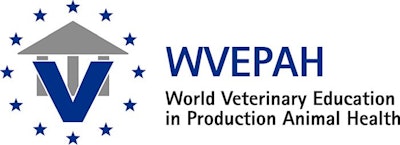
Education is the best passport to the future, and this is as true for the poultry and egg sectors as it is for any other. However, in today’s fast changing world, it is not simply a question of learning basics – there is a constant need to upgrade and hone our skills to keep up to date with the latest advances and market developments.
Think, for example, of changing consumer demands and the resulting antibiotic-free production or social pressures calling for production to be more sustainable. There are also ethical issues that have come to the fore, such as the culling of male day-old chicks, and new developments in vaccination, health and nutrition.
Access to the most recent and accurate information is key to feeding our birds the best possible diets with the minimum impact on the environment, while also preventing disease and reducing mortality.
For many of us, there are numerous and ever-evolving resources available. Think, for example, of the boom in free webinars, often sponsored by private sector companies, which offer opportunities welcomed by us all.
The benefits of investing in education have been repeatedly proven, but not everyone has the same opportunities to learn and apply the latest thinking to managing their flocks.
Basis for progress
In many countries, poultry managers only receive hands-on training, with guidance simply coming from older peers with knowledge often gained simply by trial and error. This can also be the case for veterinarians, despite being key stakeholders in poultry production, and who we rely on to help us safeguard our birds’ health and welfare.
For almost a decade now, there has been a new way that those involved in the livestock sector can gain access to the most up-to-date information needed to perform their role.
World Veterinary Education in Production Animal Health (WVEPAH) was established in 2014 to train production animal health specialists. With diplomas delivered by Canada’s University of Montreal and a curriculum, including all aspects related to regulations and disease control, recognized by the World Organization for Animal Health (WOAH), this non-profit organization offers specializations in the key poultry species, that is broilers and breeder birds, commercial layers, turkeys, and waterfowl.
While the WVEPAH had to offer its courses online during the COVID-19 pandemic, the program was designed to bring global participants together at one location, offering practical sessions such as post-mortem examinations or farm visits, as well as time to share problematic clinical cases and experiences.
Since 2014, the program has certified poultry experts from countries in Africa, Latin America, Asia and even Europe, where no dedicated poultry programs are offered to veterinarians.
With lectures offered by a team of global experts from academia or the private sector in English, French or Spanish, this program is a welcome resource to train veterinarians to better support the global poultry and egg sectors.
During the pandemic, a number of scientific and technical publications switched temporarily or permanently to Open Access publication, making new findings more easily accessible to the poultry sector. Many organizations, including WATT Global Media, are offering, free of charge, more webinars on a wide range of topics, contributing also to better dissemination of technical information.
Acquiring more knowledge and skills not only improves management practices and production, ultimately leading to more successful businesses and higher incomes, but also helps to reduce hunger, improve food security and, ultimately, helps to create a more sustainable poultry and egg sector.

















